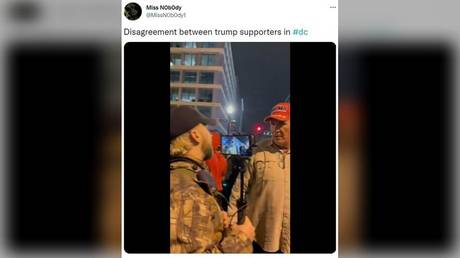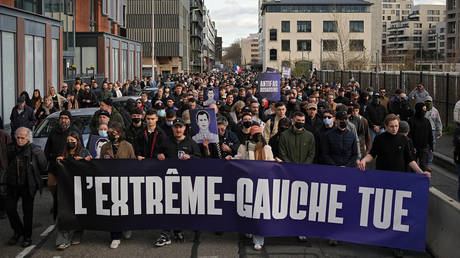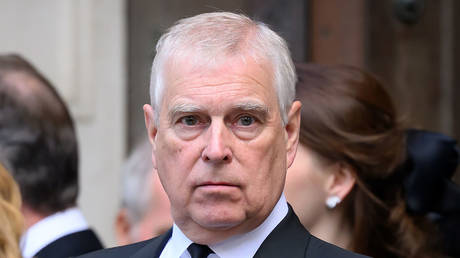A man from Arizona entered the focus of a partisan fight over how the Capitol Hill riot should be remembered
A participant of the pro-Trump rally that escalated into the breach of the Capitol Building last year was pinpointed as a possible federal agent provocateur, but critics call the claim a ‘conspiracy theory’.
How did Ray Epps make headlines? What exactly did he do in January? According to footage, on January 5, Epps talked with other members of the scheduled protest, calling on them to “go into the Capitol” the next day. “Peacefully,” he stressed on one occasion, which prompted others to start chanting “Fed! Fed!” in response.
On January 6, he was filmed directing demonstrators to go towards the Capitol after the speech Trump delivered at the rally. Later, he was filmed in front of a police barricade moments before protesters broke it down. In the video, Epps can be seen saying something to another person who was wearing a red MAGA hat, but didn’t take part in the attack on the barricade.
When was that discovered?
In the early days of the investigation, the footage was part of a trove of publicly available information on the riot. Epps was identified by local press in Arizona, his home state, shortly after the dramatic events and was interviewed about his role.told the Arizona Republic newspaper that he didn’t do anything wrong in Washington and that by instructing people to go into the Capitol, he meant going “in the doors like everyone else.” He denounced the actions of his fellow protesters.
Why do people find Epps suspicious?
Some say he may have been one of the FBI’s informants within rightwing militias, and got away with his incitement because of it. Epps is a 60-year-old former Marine who lives in Queen Creek, Arizona. He has a ranch and an event venue business there, according to public records.
In the early 2010s, he was president of the state chapter of the non-partisan militia Oath Keepers. He is also reportedly closely associated with the founder and national leader of the organization, Stewart Rhodes. Neither man was charged with any crimes related to January 6, even though other protesters linked to the group have faced some of the most serious allegations among the hundreds of people indicted as part of the Capitol riot investigation.laid out arguably the most detailed case for why they believe Rhodes and Epps were protected from prosecution by the federal government.
What does the government say?
In October, Massie asked Attorney General Merrick Garland about Epps and wider claims that government-linked agitators may have played a role in inciting the January 6 riot. Garland responded that the Department of Justice does not comment on ongoing investigations.
Is there an innocent explanation?
FBI investigators could have removed Epps from their wanted list after deciding that no additional information about him was forthcoming. His non-indictment may be explained by lack of evidence of wrongdoing that could secure a conviction.ridiculed claims to the contrary as a conspiracy theory and “the next big lie” from the Trump world to deflect the blame for the storming of Congress.
Some of this dismissive attitude may be due to the fact that Democrats and many media outlets critical of Trump have been heavily invested in treating January 6 as a major attack on the country which almost ended American democracy. Marking the anniversary of the event earlier this month, Vice President Kamala Harris compared it to Japan’s attack on Pearl Harbor during World War II and the September 11 terrorist attacks of 2001.





